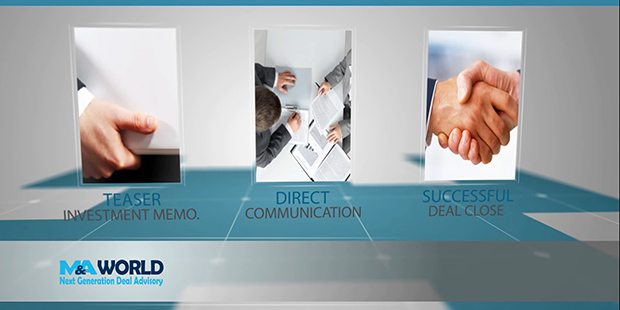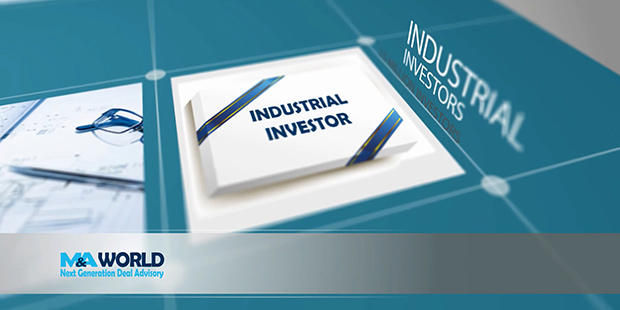Below is our recent interview with Nitin Kumar, a seasoned C-Level operating executive, one of the top management consultants in the M&A world, Board Member, innovator and investor from the Silicon Valley.

Q: Could you please provide us your view on the TMT sector trends and what are the opportunities for management consultants?
A: We are in very interesting times and I believe that we are in the middle of a dozen technological tectonic shifts which will impact every way we do business, think and even live our lives. A few examples would be transitions from:
-Licenses to SaaS
-On premise to Cloud
-Cloud to Edge
-Centralized to Decentralized (e.g., Blockchain)
-Decentralized to Centralized (e.g., SDWAN, NFV etc.)
-Data to Voice (Think Amazon, Google etc.)
-Voice to Data (think Telecoms)
-Open to Closed Systems
-Closed to Open Systems
Each of these shifts is a transformation, some of these trends even conflict with each other making strategy and execution more challenging than ever. For the first time, I believe that we have a lot of technology, but business models are still evolving. Companies need a lot of help with both strategy and execution around picking the right transformation to future-proof themselves and to transition to the right operating model. Companies are also moving away from decade long strategies to more shorter-term success metrics to create sustainability amidst uncertainity, ambiguity and disruption. We are in an era of huge opportunity for companies, investors and consultants.
 Recommended: Meet Demorian Linton: The Entrepreneur Behind One Of America’s Fastest Growing Energy Brokerage Firms
Recommended: Meet Demorian Linton: The Entrepreneur Behind One Of America’s Fastest Growing Energy Brokerage Firms
Q: Given that your deep M&A background could you share some insights on the current M&A trends in TMT?
A: The M&A deal market has been on an uptick for the last few years in the TMT sector and I do not foresee a slowdown. There are a few distinct trends that stand out:
-The new tax laws put more money in the corporate wallet creating opportunities for M&A as they think about acquiring more digital capabilities to strengthen their existing value propositions
-The strength of the US currency vis-a-vis emerging markets could trigger more cross border transactions
-Activists are continuing to play a very strong role and I see the trend rising outside the US
-Private Equity has unprecedented levels of dry powder and have been doing deals that resemble strategic buyers as opposed to purely being financially driven
-There is a lot more competition for Technology deals from outside the TMT sector driving up valuations as traditional industries embrace the need to create digital business models
-M&A integration continues to be a challenge for acquirers who have historically focused on consolidation mergers with cost synergies and now must adapt to more product-based revenue synergies and new business models. The average M&A integration teams are not equipped for this and must reconfigure their approach to integration
-Acqui-hire transactions continue to rise driven by the need for specialized talent in areas such as artificial intelligence, blockchain etc.
Companies have several challenges and opportunities when it comes to M&A, creating share holder value from transactions will be very big on the CEO agenda. Exciting times ahead indeed.
Q: What are some of the new approaches that you have developed to help M&A professionals adapt to the changing business environment?
A: As I mentioned before, over the past few years the business environment has changed but M&A practices have not kept pace with these changes. I have been tracking these and have seen the need for very targeted changes with respect to creating value from M&A in a manner that will help companies adapt to the new world order. A few new approaches that I have designed and executed include:
-A structured framework for revenue synergies, including design of the integration management office, scorecards and KPIs linking synergies to shareholder value
-Wargaming in the M&A space, providing opportunities for M&A teams to learn through simulations enabling execution under uncertainity
-New disciplines and areas around customer due diligence, integration due diligence and unlocking value from technology stacks
-Developing a new approach to integrating Platforms which requires a fresh approach given existing M&A integration teams approach this in a more product centric way
-A new approach to conduct due diligence on decentralized Blockchain assets, stacks and business models including monetization models and plans
Q: Which disruptive companies do you work with in a Board capacity and Why?
A: I work with a few different companies in a Board capacity and few fundamental reasons for accepting these positions is to have faith in the problem and solution, a good management team and my own personal ability to add value through my network and connections. I can talk about a few of them more elaborately than others, to name a few companies that I work with:
-Crosby: who has developed one the most compact and power efficient global tracking system. Their IoT technology helps with live location information, sharable data insights into people, packages and human assets.
-CyberSky Holdings: A venture focused on rolling up cyber security companies which is an area of huge opportunity. The cyber market continues to grow and gain importance with executives, no one player has dominant market share or owns the full stack. There are many point solutions out there presenting an opportunity to create a meaningful and sizable player in the space.
-Smart Beings: An AI based smart speaker but very focused on enterprise use cases and is also LTE enabled
-Pronto: which is a partner orchestration and automation platform
Q: What advice do you have for companies and consultants to adapt to these changes in the business environment?
A: Firstly, there is not one single magical formula for this adaptation, this must be tackled at many different levels, a few thoughts would be:
-Get comfortable making multiple pivots; never get into a comfort zone or get complacent even when you are ahead of the competition
-Find ecosystem builders, give them responsibility, authority and accountability
-Develop foresight and skillsets to navigate uncertainty and ambiguity
-Gravitate from intuition to data driven decision making
-Build ecosystems and develop skills to monetize them; no need to own the value chain, learn to have control of the value chain
-Doing more of the same will yield similar results
-Invest in continued and fact paced learning
-Get the organization to be agile and respond quickly



 Recommended:
Recommended: 